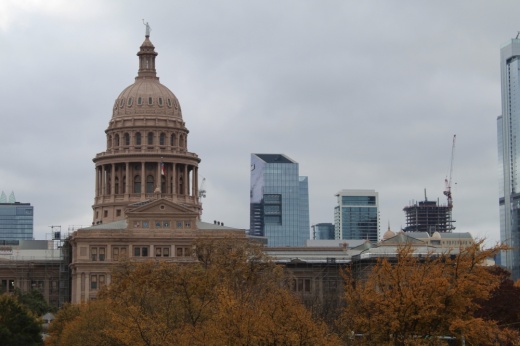Members of the Texas House and Senate convened Jan. 14 and will meet regularly until the regular session ends June 2. Lawmakers were able to begin filing bills on Nov. 12.
Not all filed bills will become law—out of the more than 13,000 bills filed in 2023, just under 1,300 became law. More bills are expected to be filed in the coming weeks as the deadline to file most legislation is March 14.
Here is a brief look at five of the dozens of bills put forward by Dallas-Fort Worth area representatives.
1. Proposed HJR 111 would add property tax limits for qualifying Texans
HJR 111 would amend the state constitution by establishing a limit on the amount of ad valorem taxes that political subdivisions can put on the houses of people who are disabled or elderly and their surviving spouses.
Ad valorem tax comes from a Latin phrase meaning "according to value,” and deals with the property tax based on the property’s assessed value. The bill was filed Jan. 13 by Rep. Shaheen and it is accompanied by an identical piece of legislation, HJR 42.
Identical bills are common in the legislative process as they allow for the same bill to be seen simultaneously by both the house and senate, according to a statement on the Texas Legislative Council website.
2. Proposed senate bill would keep a portion of I-635 toll-free
SB 720, submitted by Sen. Bob Hall on Jan 7, would prohibit any entities from placing tolls or other lane restrictions along I-635 between I-30 and US 75.
Hall represents District 2, which covers a portion of Richardson, Garland, Rockwall. The I-635 roadway, which spans nearly 40 miles of North Texas, runs through all of those areas as well as several other cities.
3. Legislation would grant Texas firefighters regular access to free cancer screenings
Rep. Ben Bumgarner submitted HB 198 on Nov. 12. The bill would require political subdivisions to offer free occupational cancer screenings to each firefighter it employs after five years of employment. Occupational cancer is cancer caused by exposure to carcinogens in an individual’s line of work or workplace.
The firefighters will be allowed another free round of cancer screenings once every three years after the initial screening, according to the bill. The same bill was submitted by Bumgarner and other representatives during the 88th Legislature.
HB 198 is also referred to in the bill text as “the Wade Cannon Act.” Wade Cannon was a Flower Mound firefighter who died in 2022 after battling occupational colon cancer, according to a Flower Mound Fire Department post on social media.
Bumgarner represents District 63, which includes the Denton County cities of Flower Mound, Trophy Club and a portion of Lewisville.
According to the bill, the occupational cancer screening must be confidential and test for each type of cancer, including:
- Colorectal cancer
- Prostate cancer, if applicable
- Lung cancer
- Brain cancer
4. HB 997 would add registration process for out-of-state virtual healthcare providers
Some professionals who provide healthcare services to Texas residents virtually—a practice commonly known as telehealth—could see new requirements through HB 997, a bill filed by Rep. Matt Shaheen on Nov. 12.
The bill states that health professionals located outside of Texas who do not hold a license or certification issued by a Texas agency would only be able to provide telehealth services if they:
- Hold a current and unrestricted license or certification authorizing the professional to provide the service issued by a licensing agency of another state
- Have not been and are not currently the subject of a disciplinary proceeding with respect to their license or certification
- Register with the applicable licensing agency of the state
5. Superintendent salaries could match the governor’s, according to new bill
Rep. Bumgarner filed HB 974 on Nov. 12. The bill proposes that the salaries, including bonuses, of superintendents and chief executive officers be limited to no more than what the governor makes annually.
Superintendent salaries can be found on the Texas Education Agency’s website and are considered public information.
Current Gov. Greg Abbott has a base pay of $153,000 annually as of October 2024, according to Ballotpedia data. The Texas Association of School Boards found the median salary for Texas superintendents in the 2023-24 school year was $150,000. It is not uncommon for superintendents to exceed that amount depending on the district’s size, according to the TASB website.
The bill would only apply to superintendents and CEOs at school districts and open-enrollment charter schools. Any allowances or stipends given to the CEO or superintendent would not be included in the overall salary.





